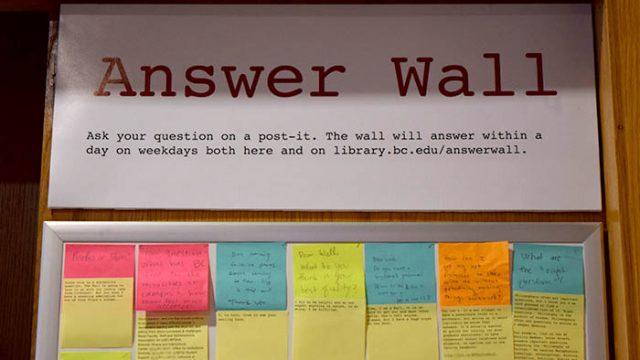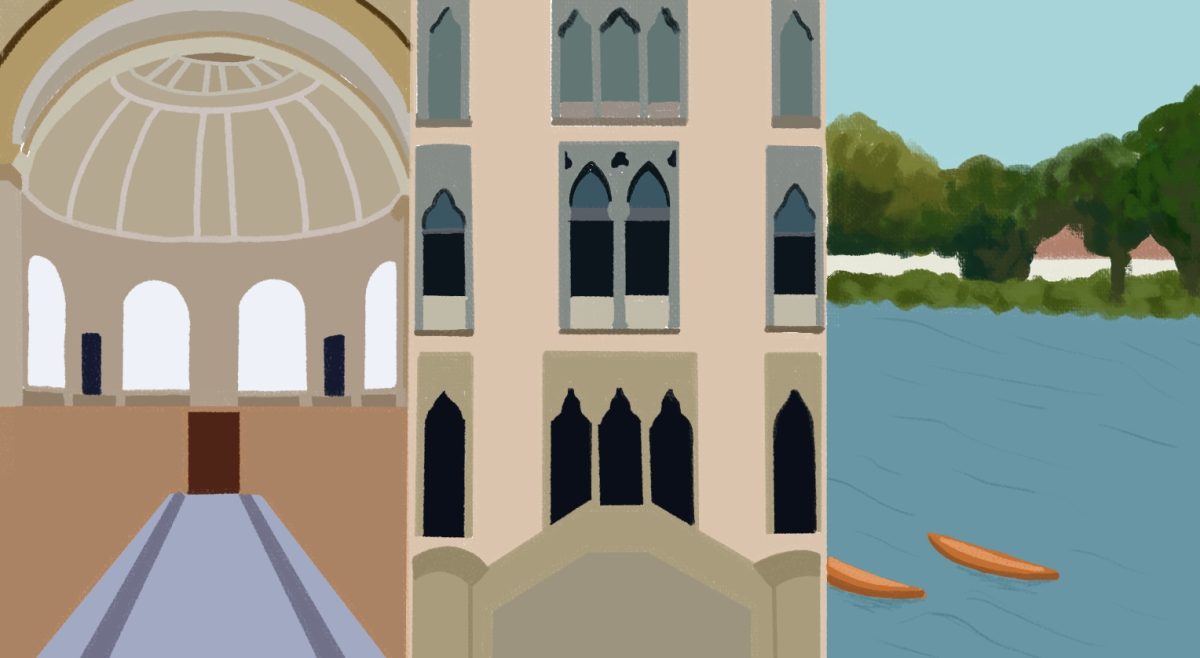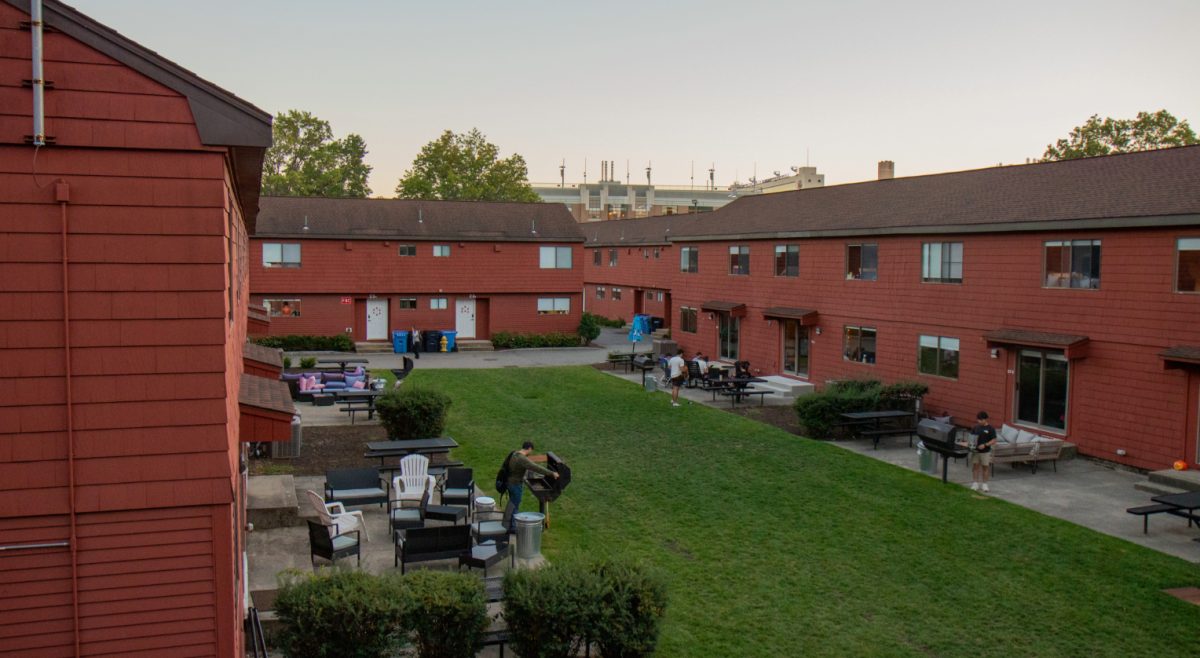Q: “Favorite Harry Potter fan theory?”
A: “From the Sorcerer’s Stone, we know that our dear friend Harry could have been sorted into Slytherin House, had he not advocated for being placed in Gryffindor. One of the key traits of Gryffindors is their bravery. What if all Gryffindors are in that house simply because they asked to be?”
This is just one of the questions and answers written on sticky notes and found on the omniscient “Answer Wall” placed in the third-floor lobby of O’Neill Library. Boston College Libraries staff created the wall as a place to anonymously ask questions and receive a serious answer within a day or two. The questions can range from the sincere to the silly, with topics varying from March Madness to existential dread.
The Wall has been in place since February, and has been full of Post-its ever since. The original group of five librarians responsible for answering questions has grown to 12 and demand is only increasing.
Steve Runge, Learning Commons Manager, and leader of the group of question-answerers, called the wall “ridiculously popular.” He believes the key to the wall’s popularity is the “collaboratively created character of the wall.”
Students have not just been asking questions, but addressing the Wall directly, asking about its dating habits, friendships, and just saying thanks for existing. Runge also believes that students are responding to the Wall character’s honesty and respect. He emphasized the importance of the questions being answered with respect to the question’s intent. Whether the question is joking, emotional, or factual, the respondents work to creatively answer the questions in the same manner. It is like a library-wide Siri, available to all.
Q: “Beatles or Stones?”
A: “Since this is a subjective question, the Wall is going to have to go with our lovely lads from Liverpool. But you know I have a sneaking admiration for one of Pink Floyd’s albums …”
Out of the 140 or so questions they have received, only five gave them any pause, according to Runge, and only one was actually pulled, and it wasn’t the question itself but a drawing added later, probably by a different student.
“Libraries are not in the business of censoring,” Runge said. “They only redact personal, potentially identifiable information, like names. Occasionally, a student has answered another’s question on the wall, creating an interactive dialogue not just between the students and adults.
Q: “How can I become cool like you Mr. Wall?”
A: “I have always found the coolest people are those who are honest with themselves and try not to be like anyone else. If others don’t think you’re cool, find some different people to be around, because you’re pretty cool already.”
Writing through the same collective lens of this omniscient character has brought the people on the other side of the wall together as well. The group of librarians that has come together as the Answer Wall is a varied bunch, coming from departments from all over campus. The wide range of departments means that any question will be answered by someone interested in the subject. From music, to stress management, to foreign languages, Boston College Libraries has every topic covered. Many posts direct people to other campus resources when needed, letting them know the help doesn’t have to end in a wall.
Carli Spina, the head librarian and one of the project leaders, was surprised at the personal direction the Wall had taken.
“It’s become sort of a library mascot,” she said.
Q: “Who are you …?”
A: “I think you mean ‘what are you?’ I’m the Answer Wall. I manifest myself as both a whiteboard in O’Neill Library and a blog. I rely heavily on various people and systems for support as most things (and people) do.”
The Wall has grown into something more than a collection of librarians collectively pretending to be an omniscient, inanimate object. Runge repeatedly brought up the magic of the Wall, the independent entity it has become. Many questions address the Wall itself, about its dating life, or tricky questions like how it writes the answers if it doesn’t have any arms. The questions are answered seriously if needed but with a clear sense of humor. It is the friendly library elder anyone can go to for advice or a good talk.
Q: “How to stop thinking about someone?”
A: “Daydreaming can be a useful exercise … until it isn’t … So, give yourself permission to think about that someone for 10 minutes each day … Make up your mind to be ‘A mind-maker-upper’ and the move onward and upward. Oh the places you’ll go and the people you’ll meet!”
The anonymity the Wall provides helps create an open place to be honest. The Wall is judgement-free. It has brought together the students of BC, reading and sharing each other’s problems and possible solutions. Some comment on each other’s questions, clarifying or supporting.
“We try to do a lot to make it fun for the students,” Spina said. “We’re offering more than just academic support, but sort of full-life support.”
Q: “Dear Wall, what do you think is your best quality?”
A: “I try to be helpful and not expect anything in return. In so doing, I am fulfilled.”
Featured Image by Amelie Trieu / Heights Editor







